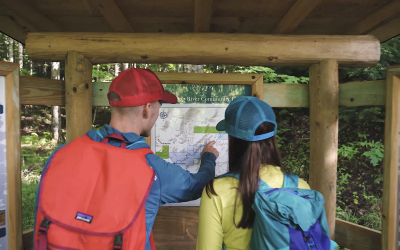Airbnb and the sharing economy have forever changed the way we travel. In just over a decade, the online platform has grown to over 2 million listings in 191 countries, opening up a world of possibilities for travellers seeking accommodations. Airbnb’s rapid growth has impacted not only the hotel industry but the residents who call some of the world’s most-visited towns and cities home. This has created immense challenges and opportunities for destinations.

Ólöf Ýrr Atladóttir, Director General of Icelandic Tourist Board and Vice President at European Travel Commission, during her keynote presentation at Destination Think Forum 2016.
How are destinations responding? Here are four perspectives from leading destination marketers:
1. Think about your destination’s maturity
“If your destination is in a growth stage and lacks a developed industry that can support the place experience, Airbnb could be a great tool to help you achieve your goals around attracting as many visitors as possible. However, if your tourism industry is already well-established, Airbnb could be seen as an unfair competitor that is able to avoid local regulations.”
-Frank Cuypers, Senior Strategic Consultant, Destination Think
2. Focus on the visitor and the community
“Currently, there are 1,360 Airbnb listings across the Island, welcoming a broad range of travelers to the country’s award-winning beaches, diverse culture and delectable culinary scene. This is part of A.T.A.’s strategy, which focuses on the diversification of the tourism industry and maintaining a good balance by keeping the happiness of its people at its core.”
-Dyane Vis-Escalona, Business Manager, Aruba Tourism Authority
3. Work diligently to mitigate challenges and build open partnerships
“Our experience in the collaboration with Airbnb taught us that it is key to clearly distinguish two things: the rules, regulations and legal context vs. future demand, trends and opportunities. Like others, we find it important that negative aspects of the “sharing” economy are being tackled adequately. However, we also feel strongly about the fact that negative excesses should not be an excuse for incumbents to fail to adopt and adapt to these developments. Just fighting against it is no option.
Here are some takeaways from our pilot partnership with Airbnb and the cities of Utrecht and The Hague:
- It was really a case of learning by doing.
- Changing and steering partners’ policies and operations is better done from within partnership than from the outside.
- On the front end, the partnership contributed to the free, organic and open reputation of both partners. On the back end, true co-creation was difficult due to the legal aspects and many conditions driven by concerns, external pressures, public opinion and regulators.
- It was a good initial experience but there is no continuation yet, at this present time.”
-Jos Vranken, Managing Director at NBTC Holland Marketing
4. Consider how Airbnb reflects a demand for authentic experiences
“…the demand for Airbnb is not only rooted in a scarcity of more conventional accommodation – Airbnb is also providing a new type of accommodation which coincides more closely to new demands for authentic experiences, a greater sense of immersing in a new culture, and more independence in travel, etc.”
-Ólöf Ýrr Atladóttir, Director General of Icelandic Tourist Board; Vice President at European Travel Commission
What is your destination’s approach to working with Airbnb? Does the sharing economy benefit your destination? Let us know in the comments.










0 Comments